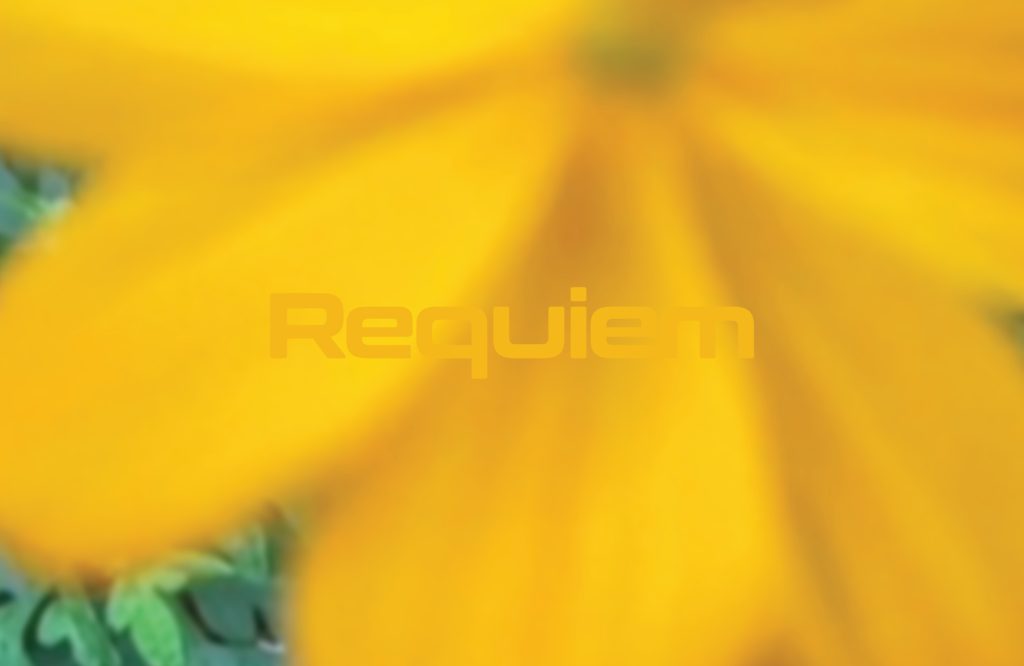
Ideals? I don’t know. They asked me a lot about them.
I am more interested, now, in the concrete everyday reality. Colors, feelings, voices, faces.
I crave for a direct confrontation with reality, with nothing in between. No Abstractions, no philosophy. And I don’t feel that I am any weaker by refusing to make preconceived choices. I change my opinions very often, these days, about objects and people, and this upsets my friends a lot. What I am going to say tomorrow may be completely opposite to what I am saying today. I am tasting everything anew. Growing. Learning about the New World around me.
Jonas Mekas, diary entry, 1950 [1]
The heart, of course, to those who heed it, always has some wisdom to share about the future. But what does the heart know? Only a fraction of that which has already happened.
Alessandro Manzoni, The Betrothed [2]
This event organised together with the Lithuanian National Opera and Ballet Theatre, is an opportunity to see the work to which Jonas Mekas dedicated the final years of his life. His film Requiem is set to a live performance of Giuseppe Verdi’s Messa da Requiem. The work was initiated by renowned curator Hans Ulrich Obrist at the newly opened art space The Shed in New York, together with its director Alex Poots, and was performed after Mekas’ passing, in 2019, under the direction of the Greek conductor Teodor Currentzis.
The performance in Lithuania is only the second of its kind in the world. At the same time, it becomes part of the Lithuanian season in France and the main event of the Jonas Mekas Poetry Day initiated by the Pompidou Centre and celebrated in many countries and institutions.
It is well known that a Requiem is a funeral mass in the Catholic liturgical rite. In modern history, they often commemorate extraordinary bereavements. Giuseppe Verdi’s Requiem was written for Alessandro Manzoni, a figure in Italian unification and a novelist. Manzoni’s most famous novel, I promessi sposi (The Betrothed), became the seminal source that Jonas Mekas read in preparing a kind of visual counterpoint to the composition. The mood of the novel, in which the story of two lovers, Lucia and Renzo, is told against the backdrop of 17th-century hardships, intrigues, and historical twists, dissolves the historical distance. The themes that Jonas Mekas conveys in his poetic and experimental cinematic language – the admiration of nature, and the celebration of the beauty of life – are accompanied here by the intervention of tragic and important world events, which are shown in the recognisable Jonas Mekas’ way, using what he had already tried out before – not directly but with mediated footage of television and newspaper clippings, recalling his film Lithuania and the Collapse of the USSR (2008). However, the film has a sense of immediacy, which is paradoxically created by Jonas Mekas’ camera and gaze, familiar to us from his diary films.
Creating a Requiem as one’s last work also marks the end of the master’s life as a work of art, which can only be spoken of without exaggeration in the rare case of particularly deeply self-reflective artists. As a result, the Requiem inevitably becomes the final curtain, the last poem and farewell.
The fact that Jonas Mekas’s final work is paired with a monumental piece of classical music is no coincidence either. Mekas performed everything he undertook with great musicality and a poetic ethos that stemmed from both his early surroundings in Semeniškės and Biržai, and his later absorption of the most vivid impressions of his arrival in New York in 1949 [3]. In one of his recollections, he stressed the importance of opera in his life: he would sneak into the old New York opera house after the first act, and years later when it was demolished, he passed by and picked up a fragment of the ceiling decoration, which, as he said, was ‘impregnated with some of the greatest voices of the first half of the 20th century.’ [4] Verdi is, of course, first and foremost an opera composer, so it is also special that the opportunity to showcase Mekas’ last work in the country of his birth is presented in the most fitting location for the piece – the Lithuanian National Opera and Ballet Theatre.
The work will be performed by the Lithuanian National Opera and Ballet Theatre Orchestra and Choir, conducted by Principal Conductor Ričardas Šumila. The soloist parts will be sung by the most prominent Lithuanian opera soloists, Viktorija Miškūnaitė, Justina Gringytė, Edgaras Montvidas, and Kostas Smoriginas.
Edvardas Šumila
[1] Jonas Mekas, I Seem to Live. The New York Diaries, Vol. 1, Leipzig: Spector Books, 2019, p. 18.
[2] Manzoni, Alessandro. The Betrothed: A Seventeenth-Century Milanese Story Discovered and Rewritten. New York: The Modern Library, 2022, p. 139.
[3] Edvardas Šumila, „New York Scenes and Echoes from Lithuania: Jonas Mekas’ Musical Milieu“, Lithuanian Music Link, No. 22,
[4] Jonas Mekas. A Dance with Fred Astaire. New York: Anthology Editions, 2017.